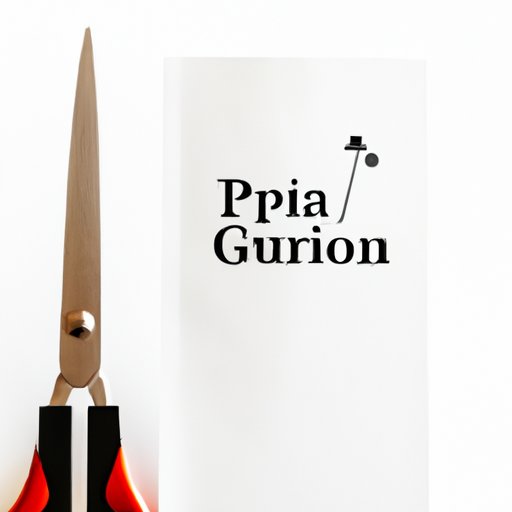Introduction
Personal growth is a constant journey that requires self-awareness, a desire to learn, and intentional actions. But sometimes, we can get lost in the chaos of life and forget to focus on our personal development. That’s why creating a personal development plan is crucial. In this article, we’ll explore how setting goals, self-reflection, and measuring progress can help you achieve personal growth. We’ll also discuss the potential return on investment for a personal development plan, share tips for creating one, and encourage you to take action. Let’s get started!
The Importance of Goal-Setting in Personal Development
Setting goals is essential for personal development because it gives you a roadmap to follow. It helps you clarify what you want to achieve and how to get there. According to research, individuals who set goals are more likely to succeed than those who don’t. One study found that those who wrote down their goals were 42% more likely to achieve them than those who didn’t. Goal-setting also boosts motivation, improves self-confidence, and leads to a sense of accomplishment.
Success stories are abundant about individuals who set and achieved their goals. One such example is Oprah Winfrey, who wrote in her diary at a young age that she wanted to be “paid to talk.” Although she faced countless obstacles throughout her life, she never forgot her goal and worked tirelessly to achieve it. Today, she is one of the most successful talk show hosts and media personalities in the world.
The Role of Self-Reflection in Personal Development
Self-reflection is critical in achieving personal growth because it allows you to take a step back and assess your progress. It helps you understand your strengths and weaknesses, as well as identify areas for improvement. Self-reflection also increases self-awareness and helps you build a deeper connection with yourself.
There are different approaches to self-reflection, and what works best for one person may not work for another. Some individuals keep a journal, while others talk to a mentor or use online tools. Journaling is a great way to reflect deeply and monitor progress. Talking to a mentor can provide an outside perspective and help you identify your blind spots. Using online tools like personality tests and mindfulness apps can also provide valuable insights into your personality and behavior.
The Potential ROI of a Personal Development Plan
Investing in personal development has a significant return on investment. When you focus on building skills, self-awareness, and personal growth, you’re better equipped to succeed in various areas of life. For example, a study by Stanford University found that mindfulness meditation increases creativity and productivity in the workplace. Another study by the Society for Human Resource Management found that soft skills training leads to increased employee productivity, job satisfaction, and retention rates.
Investing in personal development can also lead to increased income and career opportunities. According to a study by the National Bureau of Economic Research, workers who improve their general skills earn higher wages over time.
Tips for Creating a Personal Development Plan
If you’re ready to create a personal development plan, here are some tips:
- Start with SMART goals. SMART stands for Specific, Measurable, Achievable, Relevant, and Time-bound. This framework helps you create goals that are challenging yet attainable. For example, instead of saying, “I want to learn a new language,” a SMART goal would be, “I want to learn conversational Spanish within six months by taking a class and practicing for 30 minutes every day.”
- Break the process down into manageable chunks. Don’t overwhelm yourself by trying to achieve everything at once. Break down your goals into daily or weekly tasks that are easy to accomplish.
- Measure your progress regularly. Tracking your progress helps you stay motivated and make adjustments as needed. It’s crucial to celebrate your victories, even the small ones!
- Stay flexible. Sometimes, life happens, and things don’t go according to plan. That’s okay! Be open to changing your goals or adjusting your timeline as needed.
Encouraging Action
Creating a personal development plan can seem daunting, but the benefits are clear. It’s an investment in yourself that can lead to a more fulfilling life and career. If you’re ready to take action, start by setting aside some time to reflect on your goals and aspirations. Once you’ve identified what you want to achieve, create a personal development plan using the tips we provided. Remember, personal growth is a journey, not a destination. Stay committed and keep taking action, even if it’s just one small step at a time.
For more resources on personal development and goal-setting, check out online communities and podcasts dedicated to self-improvement.
Conclusion
Creating a personal development plan is essential for achieving personal growth. Goal-setting helps you clarify what you want to achieve and provides a roadmap to follow. Self-reflection increases self-awareness and helps you identify areas for improvement. Investing in personal development has a significant return on investment and can lead to increased income, career opportunities, and a more fulfilling life. By following the tips we provided and taking action, you can start your personal growth journey today.
(Note: Is this article not meeting your expectations? Do you have knowledge or insights to share? Unlock new opportunities and expand your reach by joining our authors team. Click Registration to join us and share your expertise with our readers.)
